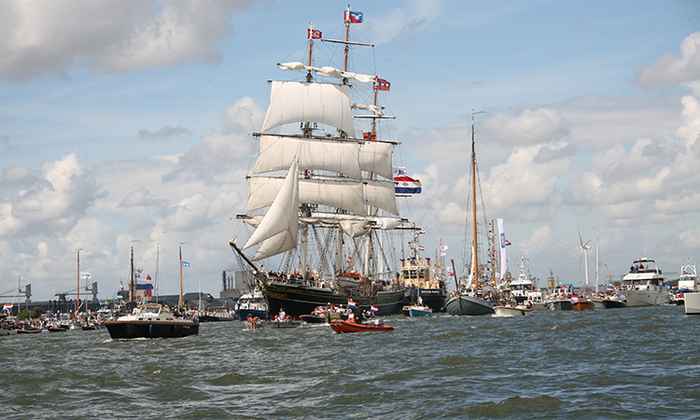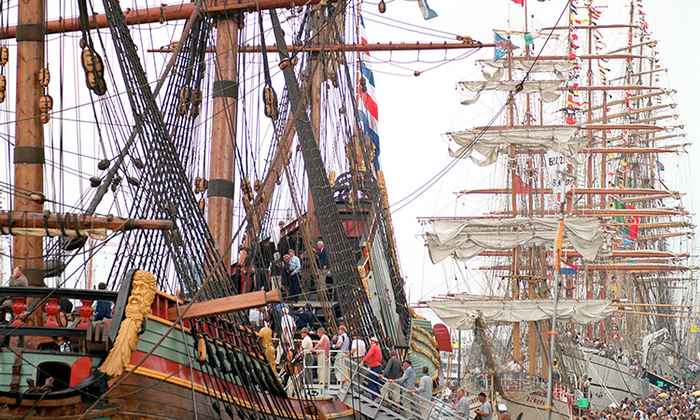How do you tempt festival visitors to choose meals with a smaller footprint?
SEVEN and SAIL join forces in research
23 April 2025
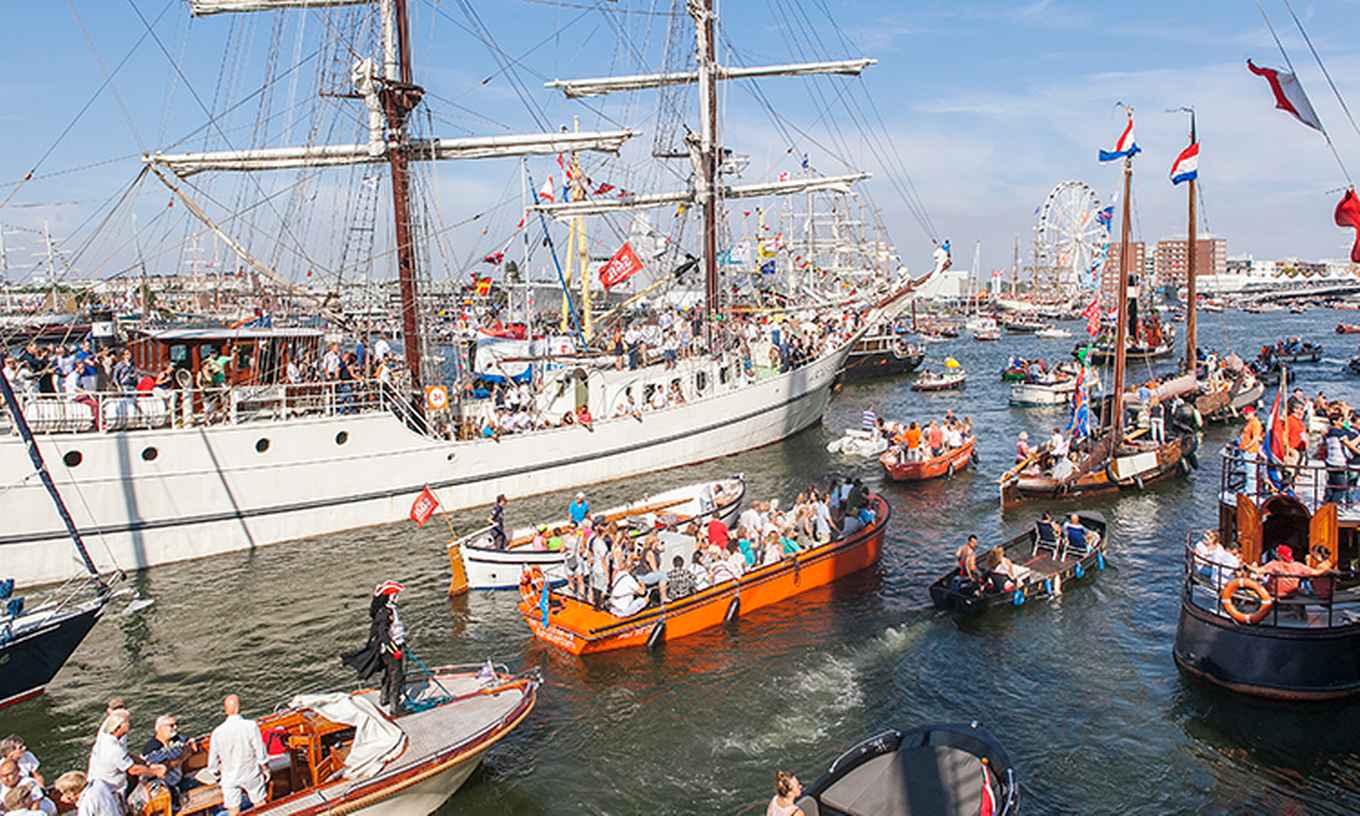
This brought SAIL to the UvA's climate institute SEVEN, which has the protein transition as one of its priorities. According to Jan Willem Bolderdijk, a UvA professor of Sustainability and marketing and SEVEN-affiliated researcher, this is a great opportunity. He has extensive experience researching the dynamics of tipping points and the role that marketers, consumers, and companies can play in making green behaviour more mainstream.
2.3 million visitors
Jan Willem: ‘SAIL offers us a unique opportunity to create a living lab and measure the effects of several interventions on some of the expected 2.3 million visitors, aimed at tempting them to choose ‘low-impact’ meals. To achieve system change, you must look for ‘leverage points’: places in the system where a small change can make a big difference. At SAIL, we hope to learn much more about the ‘knobs’ you need to turn in the food system to achieve certain outcomes.
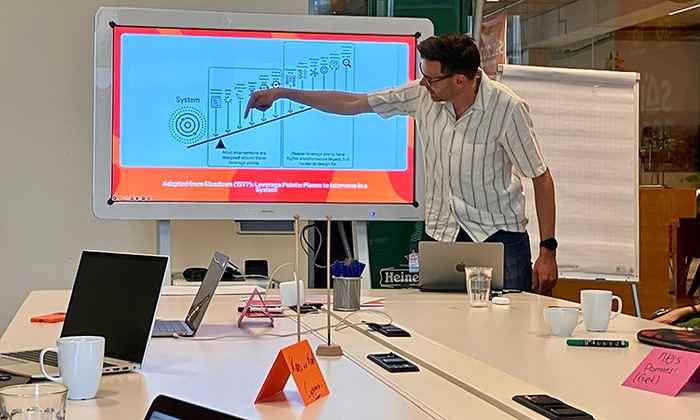
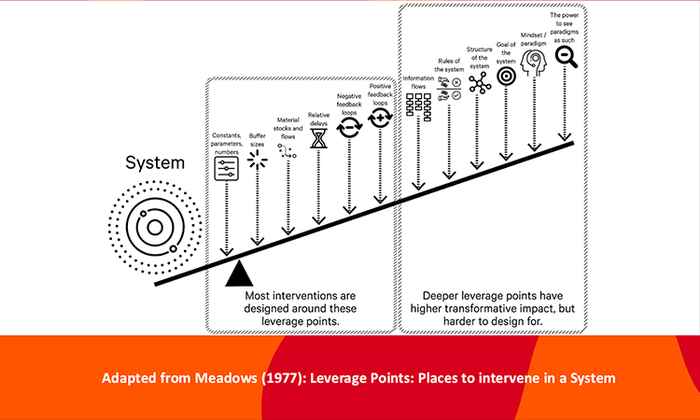
The SAIL project started with the research initiative POLDER and draws on its method, network and expertise. The first meeting with the SAIL organisation consisted of a participatory modelling session in which the forces surrounding the demand for ‘high-impact meals at festivals’ (meals with a large footprint) were mapped out. After a series of in-depth interviews with various stakeholders and scientists, a workshop took place last Wednesday.
At the SAIL office, armed with insight into the forces at play, the organisers pondered how to tempt SAIL visitors to choose a ‘low-impact’ alternative. Vegetarian is not necessarily better, as cheese has a major impact on the climate.
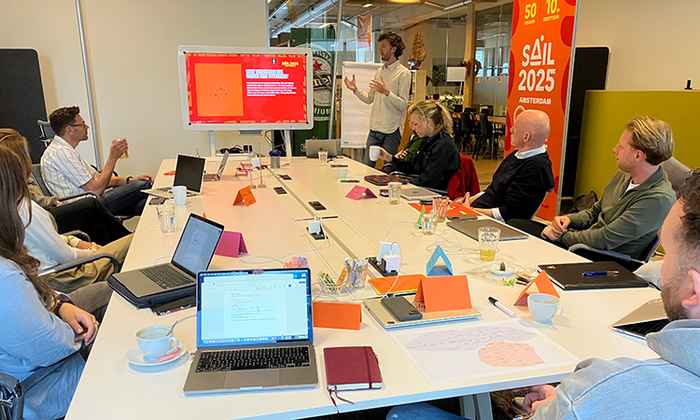
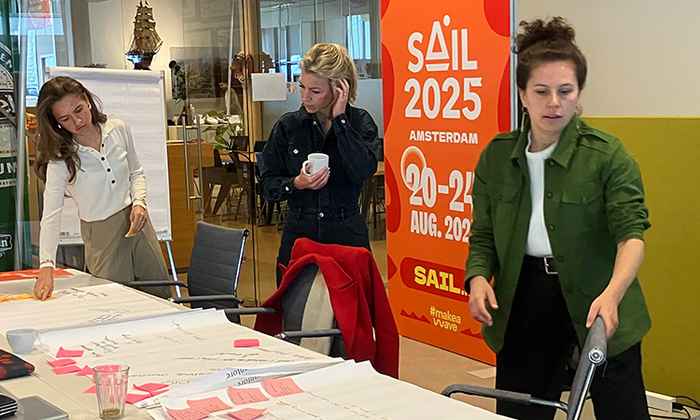
Indulging
The caterers play a key role in this; at SAIL, 22 catering providers will be selling food and drinks at a total of 62 locations. They don't need to be told anything about the behaviour of festival visitors; they know their customers well. As one of them said: ‘An event like this is the perfect place for people to indulge themselves.’
Jan Willem agreed and immediately cited research showing that alcohol not only has a disinhibiting effect but also makes people less receptive to social norms and therefore more inclined to do their own thing.
The dough
The caterers are keen to cooperate, but as one of them said in unadulterated Amsterdam dialect: ‘It's going to cost money, it's about the dough.’ At events, catering companies have to pay between 35 and 60% of their income to the organisers. The catering revenues are also important for the non-profit organisation behind SAIL to break even. Both parties want to avoid the climate-friendlier meals being more expensive and visitors buying cheaper meals outside the SAIL site.
The workshop participants came up with many creative ideas, but these will remain secret for now so as not to influence the research results. It is up to the researchers to decide whether the cost price will be included as a factor in the study.
Jan Willem: ‘It is now up to the researchers, the organisers and the caterers to work together to select several concrete interventions from all the ideas, test them during SAIL and draw valuable lessons from them about the transition to a more sustainable food system.’
Elles Tukker
